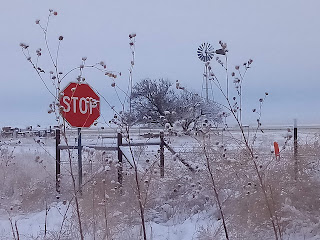I spend more time that your average person plotting about milk. This is a result of both our remote location so far from stores, and the fact that we just go through so much milk.
We will use five gallons a week of milk, if we have it. Keeping that much milk on hand at all times is very difficult when the nearest store is 60 miles away. And that store doesn't have reliably good milk, either.
Here's the breakdown for our milk supply*.
There is a very tiny kind of convenience store that's about 10 miles away that sometimes has milk. It's good quality, but sometimes it's all been purchased. And often, the store isn't open when it's supposed to be. So that's not a reliable source.
The next-closest store is 60 miles away. They have a good quantity of milk on hand at all times, but it often goes bad quickly, or is actually kind of off when we open it. I'm guessing that's because they're at the end of the supply lines and so the milk has had to travel a long time and be exposed to a lot of loading and unloading temperature changes on a truck. So I avoid buying milk there if I can.
There are a few regular grocery stores within 90 miles that always have milk, but one of them has the same problem of quality as the closer store because it's on the same trucking route. In fact, almost all the stores we go to have some problem with quality and longevity. More often than not, milk starts to separate or just plain taste bad before we get to the end of the four or five gallons we buy at a time.
The absolute best place to buy milk is Walmart. It is always fresh, it rarely goes bad within the week, and it's the cheapest, too. But of course, there is only one Walmart we can get to, and it's 90 miles away.
Where we buy milk has everything to do with where we need to be for something else, usually a basketball game or a hay run in the winter.
So figuring out when and where to buy milk this week looks like this:
We currently have 3/4 of a gallon of milk left. The last gallon of milk we opened from that same grocery run started separating immediately, which means this one will probably not last long. I can probably water it a little bit and make it last two days, but that's about it.
I had been planning to go to Walmart on Thursday and then stop at a basketball game on my way home, since I had to be going that way anyway. But now that basketball game isn't happening.
So.
Will the very small store in the next village over be open today? Will they have milk? If yes and I can get even one gallon of milk, we're good until Friday. The hay place in the big town with the Walmart is open on Fridays, so A. could go get milk then.
I could just go to Walmart this morning, bypassing the small store entirely, but that would be a trip solely to go to the grocery store, which feels like a waste because it's so far.
If I can't get milk at the small store and don't go to Walmart today, we will be out of milk for at least two days. This happens somewhat regularly and it's not the end of the world, but it's annoying.
I know someone is going to say, "Why don't you just get a milk cow?" Because I do not want a milk cow. I know exactly how much work that would be for me, and frankly, this sort of convoluted planning is easier for me than milking every day, sterilizing equipment, making cheese, etc.
Anyway, that's where I am today: Pondering whether I want to drive two hundred miles roundtrip for groceries. Stay tuned.
* I bet you never expected anything so fascintating when you showed up today, right? Right.






































